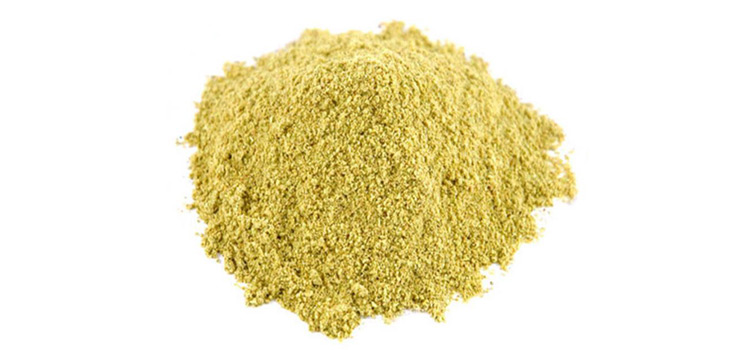
Even if you haven’t heard of “methi powder,” you’ve almost certainly heard of fenugreek, a mainstay in Indian cooking. But along with acting as a sweet-pungent aromatic spice, fenugreek also boasts a long history as a healing ingredient. The benefits of methi powder share many of the same characteristics of fenugreek just in an easier to use form.
What Is Methi Powder?
Methi powder comes from the seeds of the fenugreek (Trigonella foenum-graecum) plant, an herb that flourishes in the Mediterranean and other warm climates. When it’s used for culinary purposes as in many traditional Indian dishes, the powdered or whole seeds are typically known simply as fenugreek.
Perhaps to differentiate its culinary and medicinal uses, many people refer to the powdered seeds as methi powder when discussing its healing properties. Whether it’s known as powdered fenugreek or methi powder, the herb has a long history as a healing tool for a range of health issues, including overdue pregnancies and digestive problems.1
Internal Methi Powder Benefits
While it still warrants more study, methi powder has been shown to have the ability to regulate blood sugar, making it potentially helpful for people with diabetes. The seeds’ mucilaginous, high-fiber properties appear to slow glucose absorption as food makes its way through the gastrointestinal tract.
This same combination of the seeds’ fiber and the mucilaginous material in which it is suspended may also slow the absorption of cholesterol from the food you’ve eaten. In fact, for some people with cholesterol problems, methi powder may help by raising HDL, or “good” cholesterol levels, while lowering triglyceride levels and LDL, or “bad” cholesterol.2
Along with having a potentially beneficial effect on blood sugar and cholesterol, methi powder is considered a useful appetite stimulant. Germany’s Commission E, which is analogous to the U.S. Food and Drug Administration, has given its approval to methi powder as a treatment for people who have poor appetites. That means that for people suffering from appetite loss from cancer treatment, oral medications, depression and anxiety, or other health issues, methi powder may be a useful additive—either when added directly to prepared dishes, or when taken in capsule form.3
External Methi Powder Benefits
In addition to approving methi powder for use as a mild appetite stimulate, Commission E has also allowed the powdered seeds to be sold as a topical treatment for rashes and other skin irritations. The powder, when mixed with warm water, can be applied as a poultice directly over the affected skin.
Methi powder may also be beneficial for other external skin concerns like localized swelling, eczema, minor wounds and boils. The anti-inflammatory properties of fenugreek seeds are what apparently give methi powder its effectiveness as a healing, soothing poultice ingredient.
Methi Powder Side Effects and Drawbacks
The National Center for Complementary and Integrative Health (NCCIH) warns that in the United States, not enough has study has been done on methi powder and other fenugreek products. Therefore, NCCIH doesn’t currently recommend using fenugreek or methi powder as a primary medicine for medical concerns such as diabetes or high cholesterol. Even if you decide to experiment with supplementing your medicinal regimen with methi powder, it’s important to consult your doctor first to determine if it might interact negatively with your current medications or make a health problem worse.
Fenugreek has been associated with uterine contractions, so methi should be avoided by pregnant women. In some people, it can also cause digestive issues; if you decide to use methi powder medicinally, start slowly until you’re sure it won’t cause diarrhea or stomach pain.
Finally, there is some evidence that fenugreek acts as a kind of natural estrogen. While future studies may find this helpful for such challenges as menopause, for now, the main implication of this estrogen-like quality is that it should be avoided by cancer patients who have been told to avoid any hormonal supplements.
Interested in Trying Methi Powder?
If you’re interested in reaping the beneficial compounds of fenugreek seeds, the most obvious way to begin is by incorporating the powdered or whole seeds into your cooking. Along with other exotic spices such as turmeric and cumin, fenugreek is considered both aromatic and beneficial to your health.
Before taking methi powder for specific health problems, talk to your doctor. You can also explore online natural medicine databases which discuss dosages, along with potential interactions and side effects.
Sources
- Fenugreek. National Institutes of Health. Published November 30, 2016. ↩
- Ayurveda. University of Maryland Medical Center. Last reviewed November 6, 2015. ↩
- Tran L TH. Reviewed by Susan Paulsen, PharmD. Fenugreek. Skaggs School of Pharmacy and Pharmaceutical Sciences. University of Colorado. Published May, 14, 2003. ↩
